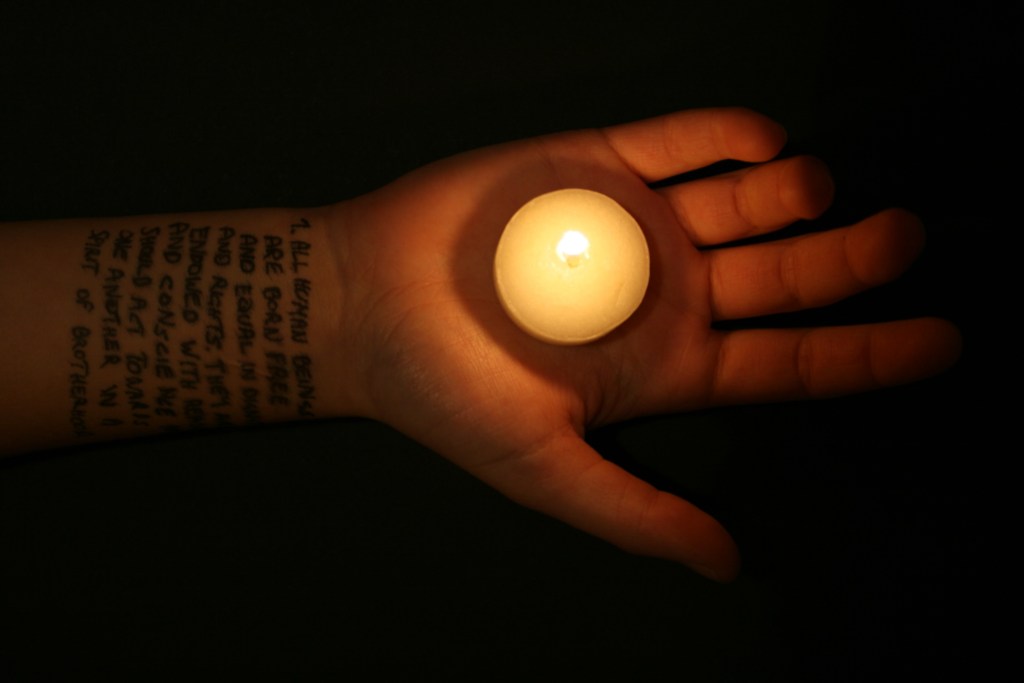
Human Rights Day (December 10) calls on us to recognize and reaffirm our commitment to the inalienable rights that everyone is entitled to as a human being, regardless of race, color, religion, sex, political affiliation, or other status. This year, the observance takes on heightened importance amid the COVID-19 pandemic, which has fueled deepening poverty; rising inequalities; and structural, entrenched discrimination.
We must ensure that human rights are at the heart of all pandemic recovery efforts. This starts by increasing awareness of human rights — what they are, and COVID-19’s impacts on the most vulnerable peoples and communities.
Building on our #WikiForHumanRights campaign that launched last year, the Wikimedia Foundation and United Nations Human Rights Office (UN Human Rights) will continue to emphasize the creation of content about human rights on the Wikipedia platform, especially in light of the different world COVID-19 has created.
Throughout 2021, opportunities will be made available for volunteers to improve and expand critical knowledge about human rights online, as part of Wikipedia’s upcoming 20th birthday celebrations and in support of UN Human Rights’ #RecoverBetter campaign. These opportunities include:
- Starting on 15 January, which marks Wikipedia’s 20th birthday, the annual “One Librarian, One Reference” (#1Lib1Ref) campaign will include a “Human Challenge” encouraging everyone to contribute citations to human rights content on Wikipedia.
- In March, Wikimedia Sweden will continue the human rights defender focus of the Wiki Gap Challenge, highlighting women who continue to champion human rights in these challenging times.
- Around Earth Day (22 April), we will encourage communities to run #WikiForHumanRights/#Wiki4Climate events that explore the human impacts of the global climate crisis.
If you are interested in learning more, or organizing a #WikiForHumanRights challenge in your community as part of Wikipedia’s 20th birthday celebrations, please join the WikiForHumanRights Telegram channel. You can also monitor for updates via @Wikimedia and @UNHumanRights on Twitter and/or the campaign Meta page.
When our partnership began in August 2019, we knew the importance of human rights in our communities’ work, and we were eager to celebrate the human rights to freedom of information and access to knowledge. The ensuing #WikiForHumanRights campaign, which encouraged more content about human rights to be added to Wikipedia, showed the power of our movement in helping to fill knowledge gaps on Wikipedia and beyond.
While the pandemic has made this mission more challenging, our communities continue to document human rights knowledge and the work of human rights defenders. For example:
- Wiki Movemento Brazil, Wikimedia Switzerland, and Wikimedia Argentina continue to run programs focused on spreading human rights knowledge
- The WikiGap Challenge in March highlighted the need for more content about women activists in our projects
- WikiForPeace ran a writing weekend focused on Climate Justice in April
- Communities in Nigeria highlighted youth organizing to protect our right to a healthy environment
Wikimedia contributors and communities around the world continue to contribute to human rights knowledge, which will help people know their rights and claim them, engaging in public processes necessary to achieve real, positive change.
As UN Human Rights explains, “we will reach our common global goals only if we are able to create equal opportunities for all, address the failures exposed and exploited by COVID-19, and apply human rights standards to tackle entrenched, systematic, and intergenerational inequalities, exclusion and discrimination.”
We hope you will join us in this critical work.
Alex Stinson is a Senior Strategist on Community Programs at the Wikimedia Foundation. Follow them on Twitter at @sadads.

Can you help us translate this article?
In order for this article to reach as many people as possible we would like your help. Can you translate this article to get the message out?
Start translation